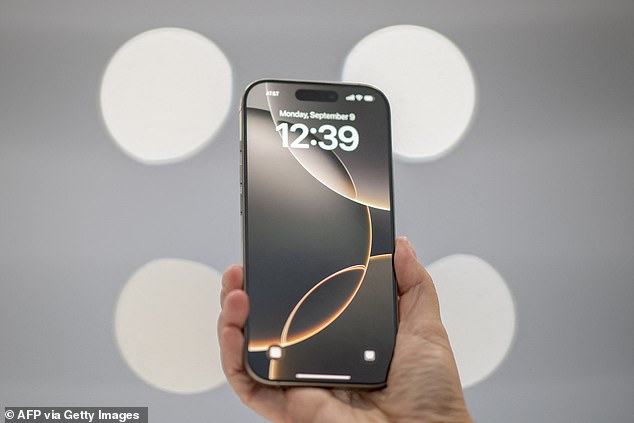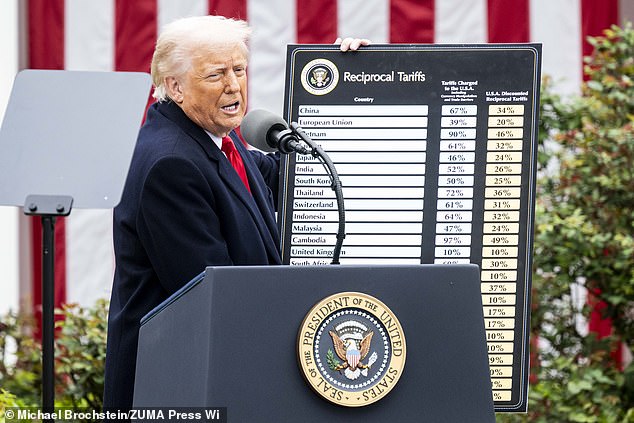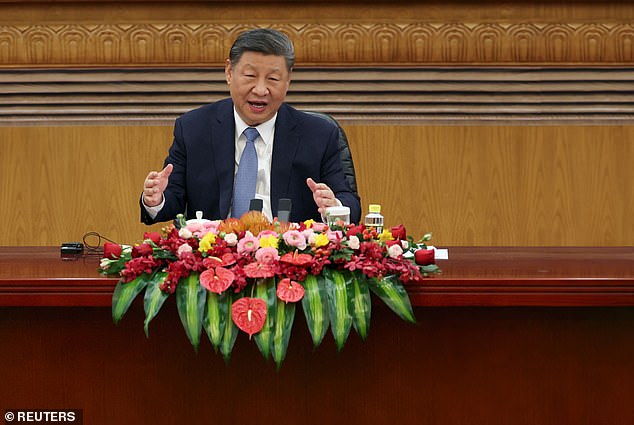- PODCAST: Trump's 'Freedom Day' Tariffs, along with an unexpected push for the death penalty in the Luigi Mangioni case. Tune into Welcome to MAGAland here.
The price of an iPhone is expected to surge during President Donald Trump Experts have cautioned about the "Liberation Day" tariff enforcement measures.
The expense of manufacturing their newest version of the widely favored smartphone is slated to increase from $580 to $850. TechInsights analyst Wayne Lam informed The Wall Street Journal .
This is due to the fact that Apple produces its iPhones in China, a country that has faced impacts with an impressive 54 percent duty on its incoming products.
The technology company would probably transfer these increased expenses to customers, raising the cost of a 256GB iPhone 16 Pro. From $1,100 to a staggering $3,500, as stated by Wedbush Securities analyst Dan Ives.
The president asserts that his tariffs will encourage domestic manufacturing By raising the cost of imported goods.
However, because Apple would still require importing the raw materials, previously used for making its devices According to experts, there isn’t an economic method for producing iPhones on American soil.
Transferring iPhone manufacturing to the United States would represent "a colossal and immense endeavor," senior research analyst Barton Crockett from brokerage firm Rosenblatt Securities told The Wall Street Journal.



'It’s uncertain whether you can produce a competitively priced smartphone here,' he informed the outlet.
At present, the expense for assembling it stands at approximately $30. China However, this cost would increase by tenfold if production were shifted to the US, according to Lam.
Apple did not respond to the Wall Street Journal's request regarding any possible price adjustments connected to the recently introduced tariffs.
On Liberation Day, Trump announced that international commerce and trading customs have triggered a nationwide crisis.
All nations will be confronted with minimum 10 percent tariffs on every US import beginning this coming Saturday.
However, over 90 nations will face extra retaliatory tariffs aimed at rejuvenating America’s wealth by April 9th.
Reciprocal tariffs, as stated by the White House are necessary for balancing the trade imbalances between the US and each of our trading partners.
Various nations such as China will face these tailored levies, which are estimated by the White House when considering those countries' trade policies.
In reaction to Trump's Liberation Day, Chinese President Xi Jinping announced that the nation will add-on an additional 34 percent tariff on all US imports.
The fresh tariff, set to begin on April 10, mirrors the 'reciprocal' 34 percent duty introduced by Trump. These additional charges will be piled onto the current tariffs that have been placed on American products.
"China's latest tariff measures do not escalate into an all-out trade war, yet they represent a significant intensification — responding tit-for-tat to Trump’s moves and indicating that President Xi Jinping will not remain passive amid pressure," says Craig Singleton, senior China fellow at the Foundation for Defense of Democracies. told the Associated Press.
Before Wednesday's announcement, Trump had previously done so. impose two waves of 10 percent import tariffs on China.
'Should this situation drag on further, it will only become more difficult for both parties to ease tensions without suffering a loss of prestige,' Singleton cautioned.
Read more.png)